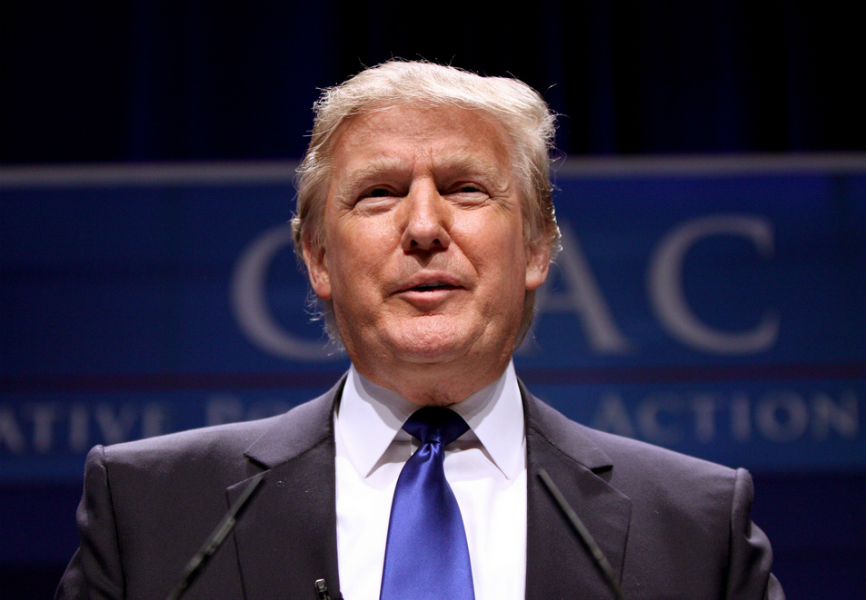

Authoritarian's Soft Democratic Edges
A big theme of the current moment in global politics is the growing number of countries that straddle the border between authoritarianism and democracy. Even some countries with highly constrained political systems still allow some element of political choice, while other previously democratic countries have limited the range of possible political outcomes. Here are a few key examples and how they work.
Iran's Limited Choices
When is the next vote? A presidential election will be held on May 19.
Who's running? Current President Hassan Rouhani is up for re-election and is narrowly favored to win. He faces two main conservative challengers, Ebrahim Raisi, a veteran of Iran's judicial system and a name mentioned as the next possible supreme leader, and Mohammad Baqer Qalibaf, the current mayor of Tehran. That position, notably, was also once held by former President Mahmoud Ahmedinejad, who wanted to run but was disallowed.
Will there be a real choice? Yes, but you have to order from the menu. A clerical body reporting to Supreme Leader Ayatollah Ali Khamenei, who is the ultimate authority in the country, vets candidates and decides who can run. This year, 1,600 candidates registered, and six were allowed to proceed. No women were approved.
Will the election impact policy? Yes, but within limits. The Iran deal, for instance, was supported by the supreme leader, who is very much not up for election, but Raisi would raise tensions around it. Rouhani's economic pragmatism might take a hit, too.
Turkey's One-Man Band
When is the next vote? The timing of the next election is a major question in Turkish politics. The country's recent constitutional referendum will greatly strengthen the powers of the presidency, but the most significant changes only come into effect after the next vote. An election is scheduled for 2019, but the government could move the vote forward. They have denied planning to change the date, but are likely to do so anyway.
Who's running? President Recep Tayyip Erdogan will certainly run for a newly enhanced presidency, and finding a challenger to oppose him will be a major problem for the opposition. Although the referendum only succeeded by a narrow margin, Turkey's opposition parties are weak and divided and will have difficulty uniting around a single challenger.
Will there be a real choice? Yes, though notably the recent referendum was criticized by independent electoral monitors, and the results are still being challenged in court. That said, Erdogan is proud of touting his democratic legitimacy and wants to show that he's still the people's favorite. He wants to show a clean win.
Will the election impact policy? Yes, though it would require someone actually beating Erdogan, which will be a tall order.
Venezuela's Controlled Chaos
When is the next vote? A big open question. A presidential election is due in October 2018. The national electoral commission, controlled by allies of President Nicolas Maduro, cancelled state elections scheduled for December and is yet to issue a new date, though a decision is expected soon. The opposition's efforts to force a recall election for the president has been similarly stymied.
Who's running? This is also a subject of intense politicking. Maduro himself is eligible to run again. His allies have attempted to blacklist the major opposition candidates, notably including Henrique Capriles, a state governor who only narrowly lost the 2013 election against Maduro. Capriles is officially banned from running for office for 15 years. But the rule of law is fuzzy in Venezuela at the moment, so that may not hold.
Will there be a real choice? That depends on the circumstances of the vote. Legislative elections in 2015 produced a landslide for the opposition, who then saw their powers curtailed by the presidency and judiciary. Capriles contested the result of the 2013 presidential election. An election stage-managed by the current leaders may be similarly suspect.
Will the election impact policy? Again, it depends on the circumstances of the vote. New state elections, if agreed to quickly by the presidency, may be simply a way for Maduro and his allies to relieve pressure from the opposition without making serious changes.
Russia Picks…Putin
When is the next vote? Russia votes for president in March 2018, with a potential run-off the next month.
Who's running? Vladimir Putin hasn't technically announced yet, but he's widely assumed to be running again. His main challenger is Alexei Navalny, a populist anti-corruption campaigner who has led a guerrilla campaign against the Russian government. A more interesting question is whether Putin, who is personally very popular, will throw over his longtime prime minister, Dmitry Medvedev, who has been targeted by Navalny's protest movement. It's a bad sign when authoritarian leaders have to say, “The prime minister doesn't put much stock in poll data.”
Will the election impact policy? No. Past elections have at times prompted significant popular discontent, but Putin isn't likely to leave anything to chance. Putin is no longer technically the leader of United Russia, the party that controls the Duma, but it still exists primarily to promote Putinism.
Can things change as a result? See above. Putin's friends and foes should dig in for the long haul.
Your Weekly Bremmer
“I'm a big fan of Russian oligarchs paying more to get into the Met.”— New York City Mayor Bill de Blasio, who has finally found a winning fiscal strategy: make Russian oligarchs pay for everything. Someone please alert Paul Ryan.